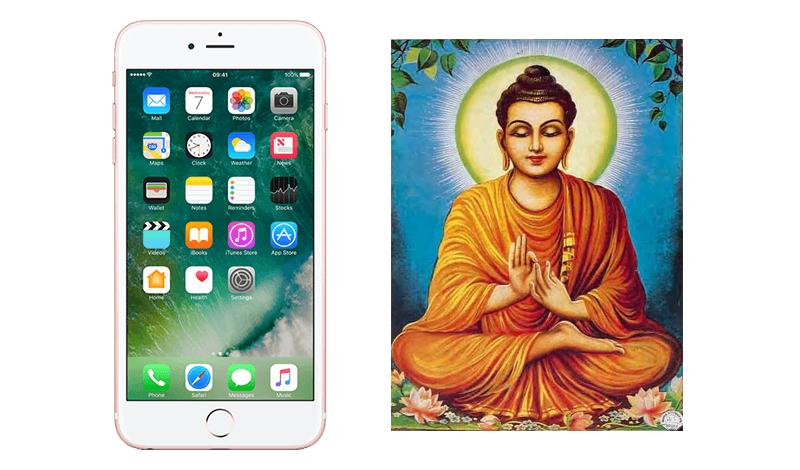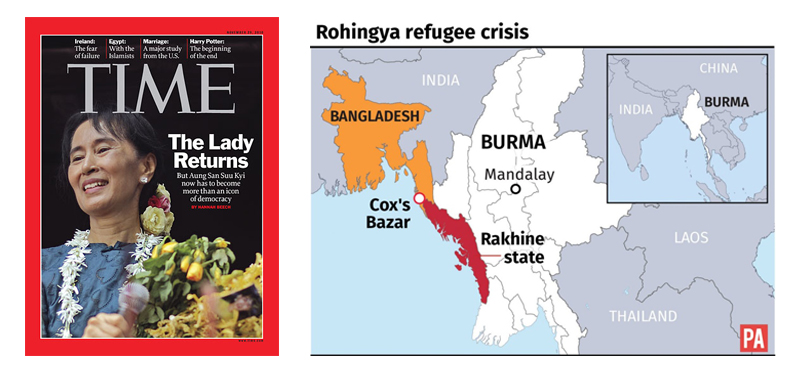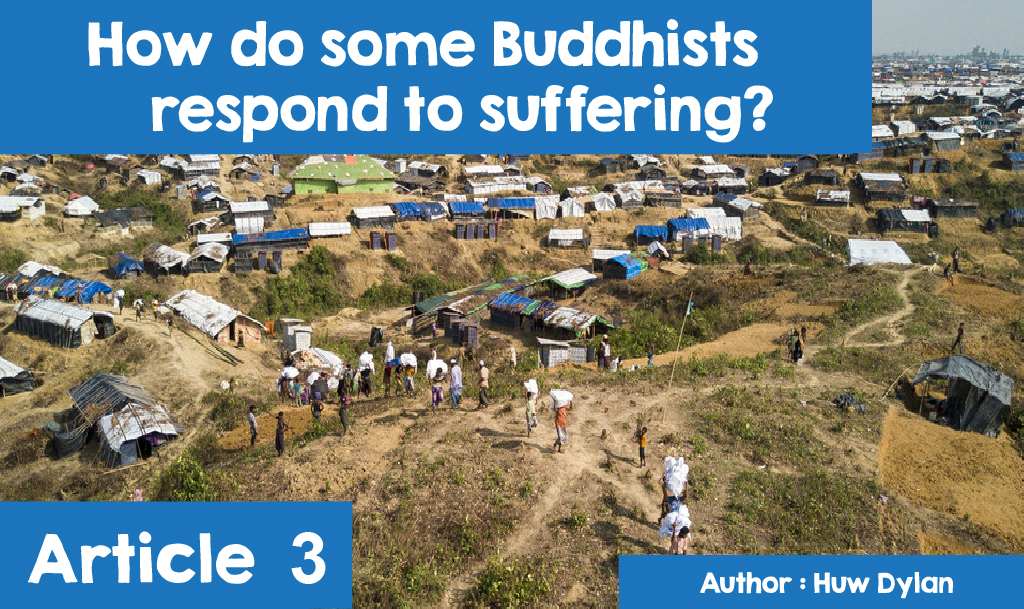How do some Buddhists respond to suffering?
The teachings of Buddhism.
My feet hurt in those new shoes! I'm tired after overdoing it! I’m fed up with this phone! Dewi has had the latest iPhone! Pity that I can’t go to Dubai on holiday! Did you see the price of that bag - I could never afford it! This house is too small, I'm desperate for a bigger place!
How often do we hear people say things like this? According to the religion of Buddhism, much of the suffering we face comes from the fact that we are never satisfied. We constantly want something better, newer, the latest. It is often the fact that we are never satisfied that creates a great deal of the suffering we face. On the other hand, there is suffering and unpleasant things that we cannot avoid; illness, old age, death - things we can't change from worrying about them!

The message of suffering is central to the Buddhist religion. In the words of the Buddha, the founder of the religion some 2,500 years ago; "I am learning about suffering, its starting point, how to eradicate it and the path to it. That's all I learn".
Here are the origins of the Four Noble Truths:
- Life consists of suffering (Dukkha).
- The starting point of suffering - this is often people’s craving/desire.
- The way to overcome suffering - this is often avoiding a craving / desire.
- The truth of the path that leads to the eradication of suffering.
The Buddha has often been compared to a doctor. In the first two truths he analyses the problem of suffering and identifies the cause. In the third he finds the cure. The fourth sets out The Noble Eightfold Path, a sort of prescription for improving the situation.
In Buddhism, suffering is not God’s punishment. There are many causes for suffering. Some of the cases are related to Karma. Karma means actions and they can have good or bad consequences. In simple terms, good deeds lead to happiness while bad deeds lead to sadness. It does not follow that this is immediately apparent. Because of Buddhists' belief in re-birth, it is possible for karma to be transmitted from one life to another over an endless number of previous lives. In such a life, there is a lot of good and bad karma that can have the most sudden harvest in one's life at random. It is not possible for us to anticipate or understand the suffering that may come as a complete surprise. Reflecting on and trying to understand the Buddha's message are some of the ways to deal with this. These can be helpful when considering age-old questions about the cause of suffering.
The Response of Buddhists
At the Awakened Heart Refuge established near Criccieth some years ago (see article in Issue 7, October 2018); leader Lama Shenpen is well aware of the need to confront and deal with suffering. There they practice 'Mindfulness' and meditation regularly. There, there is an emphasis on being 'alert' to the Buddha's message as well as finding 'refuge' in the Buddha, as the title of the community suggests. According to its Website, "The training is a search for the truth. A process of researching our experiences and understanding our true nature. In the midst of all the pain, doubt, stress and confusion of our lives, there is something to strive for."

The Rohingya crisis in Myanmar / Burma.
People all over the world have suffered because of religious prejudices. Jews have suffered over the centuries, and everyone is aware of the horrors of the Holocaust during the Second World War. Today Middle Eastern Christians are facing persecution that may see Christianity virtually disappear from the areas where it first took root.
When Aung San Suu Kyi became Myanmar / Burma’s elected leader in 2016, there was great celebration in the country. The country (with a significant majority of them Buddhists) had been under military control for decades. There was a warm welcome in democratic countries around the world. She had won the Nobel Peace Prize in 1991 for her stance on rights and freedoms and there was even a film about her - ‘The Lady’ - in the cinema.

The international hopes soon faded. Hundreds of thousands of Rohingya Muslims were forced to leave Rakhine province in Myanmar / Burma and flee for their lives across the border into Bangladesh. This was due to army attacks. Aung San Suu Kyi has been accused of doing nothing to prevent the destruction of Rohingya homes, rape, murder, and a possible genocide attempt. The army's power within the country continued.
In his BBC programme on Myanmar / Burma, Simon Reeve came across a group of Buddhists who taught hatred against Muslims. There was an attempt to ban this group, but they have monasteries where they train young monks in Myanmar / Burma. According to one leader, "The Muslims want to take over the land for themselves. That's the problem ......... I think Muslims are essentially unpleasant people".
According to one of the Muslims who has had to flee his home in Rakhine Province, "This is our country. This was where we were born. This is where our forefathers lived, and lived for centuries". According to Lama Shenpen of the Buddhist Refuge near Criccieth, "Those who persecute Rohingya Muslims call themselves Buddhists, but the rest of the Buddhists in the world are ashamed of their behaviour and regard it as contrary to the basic ideas of Buddhism".



